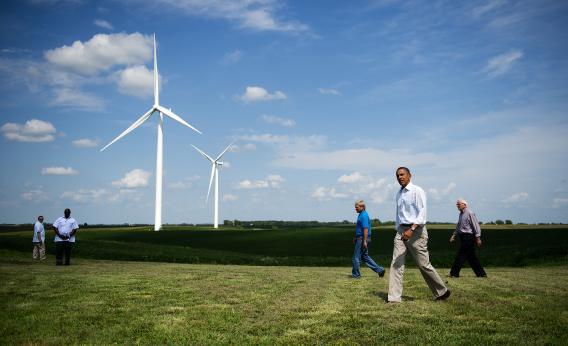There is plenty to dislike about the last-minute fiscal-cliff deal that Joe Biden and Mitch McConnell hashed out on New Year’s Eve. But the technology and energy provisions are bright spots.
The deal, passed by the House on Tuesday, extends the research-and-development tax credit through 2013, helping to preserve the jobs of high-skill researchers working on tomorrow’s technologies and scientific advances. As Obama said in his remarks Tuesday night, “We can’t keep cutting things like basic research and new technology and still expect to succeed in a 21st century economy.”
Likewise, the deal will preserve for at least one more year the wind energy production tax credit, staving off cuts that would have severely undermined the nation’s fastest-growing energy source. In fact, as Reuters points out, much damage has already been done merely by last year’s controversy over the tax credit’s future. Despite a record year in which wind power contributed more new capacity to America’s domestic energy mix than any other source, including natural gas, political uncertainty prompted layoffs at major manufacturers in Colorado, Pennsylvania, and Iowa. (Mitt Romney may have appreciated wind jobs in Iowa, but he wasn’t about to lift a finger to preserve them.) Still, the one-year extension will prevent far deeper job losses, with a trade group estimating that it will save some 37,000 jobs in the first quarter of 2013 alone.
As those figures suggest, wind power is no longer an insignificant bit player on the nation’s energy scene. The Department of Energy estimates that it has the potential to supply as much as 20 percent of the country’s electricity by 2030. Now the trick is to build more lasting policies that give the industry some assurance about its future, so that it doesn’t have to lay off and then rehire workers every year. The trade group has asked for the credit to be phased out over five years beginning in 2014, which seems like a reasonable solution. Admittedly, reasonable solutions don’t seem to be Congress’ strong suit these days.
